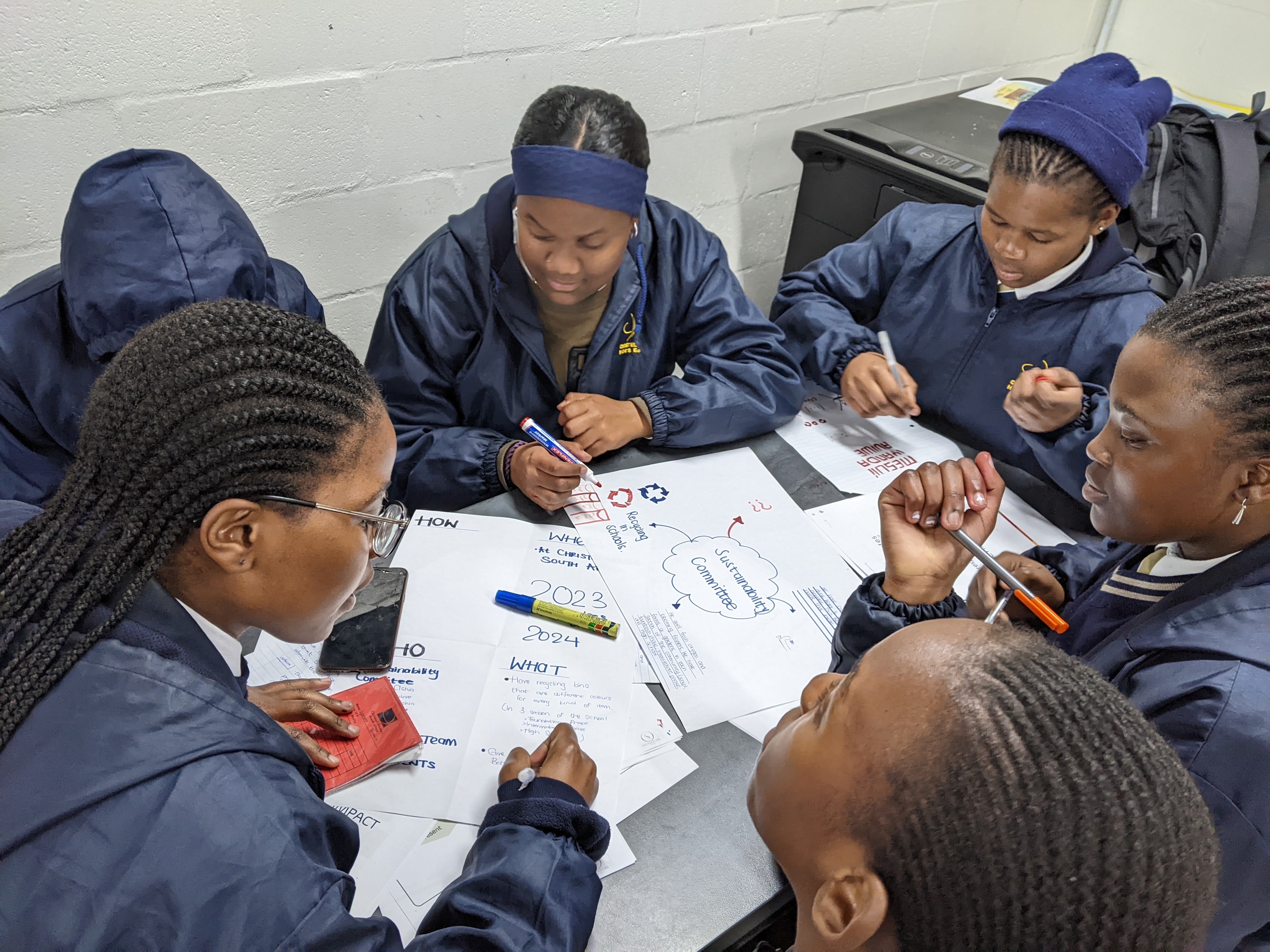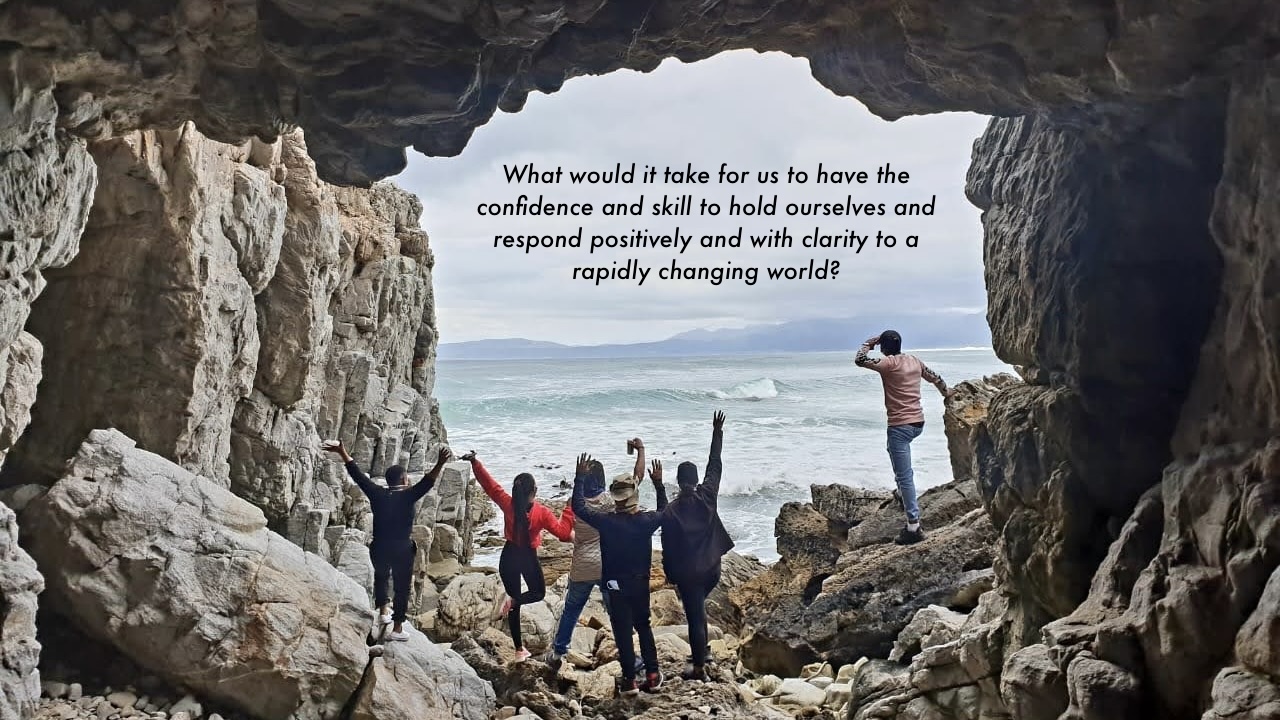
Sustainability Matters is a non-profit sustainability education and youth development organisation. We seek to provide scholars, school-leavers and young employees with the means to orientate to a positive future in a rapidly changing world, to determine individual and collective action and work paths that lead to fulfilling and sustainable lifestyles and lives, contributing to the emergence of new, just and greener social and economic ways of being.
Our Purpose is
- To validate youth experience and respect their voice while engaging with the issues that will define their future.
- We do this by collaborating with organizations that share the same aspirations as we do.
- We support youth in developing agency and the sense of their "next step".
Our Work
Our value proposition
The lens through which we work is of sustainability - positioned here as both a global and a personal goal. Its challenges are embedded in local contexts, communities and ecologies. Centrally this means developing in students a deep understanding of the interconnectedness between people and planet, expanding their view of the world to understand it in terms of systemic relationships and complexity rather than isolated events.
The connection between people and planet also takes the form of appreciating the development path of what is often termed “the human enterprise” and its relationship to historical and present-day social and environmental injustice. This includes a critique of the externalities of our economic development model and the lessons we can learn from nature’s principles.
These contexts offer the conceptual framework that we hope transforms a world experienced only as subject, to a world treated as an object of thought – and in so doing mobilises from the inside the desire and confidence to act upon it.

Our Theory of Change
The theory of change we offer to participants as a working hypothesis is that IF WE:
- understand the interconnections between the natural, social and economic world we live in and our relationship to it;
- experience ourselves, others and the world, both from inside and as thoughtful observer;
- feel empowered, understand and represent ourselves responsively and intentionally;
- know how to build relationships of solidarity and inclusive teamwork cultures,
THEN we will have the confidence and skill to hold ourselves and respond with clarity to a rapidly changing world, to navigate toward sustainable lifestyles and lives.
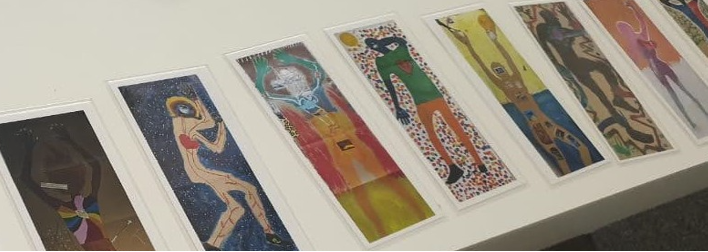
Our Offering
We offer a well-developed curriculum – researched, rooted in social and natural sciences; rooted in clear understanding of sustainability concepts and the pedagogy and social process required to transfer these understandings in a way that best accesses the thinking, behaviour and motivation of students. We combine socio-cultural learning theory with place-based learning and a focus on translating learning into doing differently.
Our approach is framed by the idea that working with the parallels between our relationship to ourselves (our sense of ourselves, our emotions, our bodies), to each other, and our relationship to the earth system (the ecosystems, at different scales, that are what contain all life) allows individuals to view their world and themselves from the perspective of thoughtful observer.
Making conscious our reactions and their origins in our lived experience – and working thoughtfully with these – creates the conditions for transformation. This is the opportunity we offer. Our programmes weave together looking inward (how we recognise what is happening inside us in an embodied way and how we respond) with looking outward (at the world: how we got here) and relating these processes to understand the connection between personal and global sustainability.
Our Team
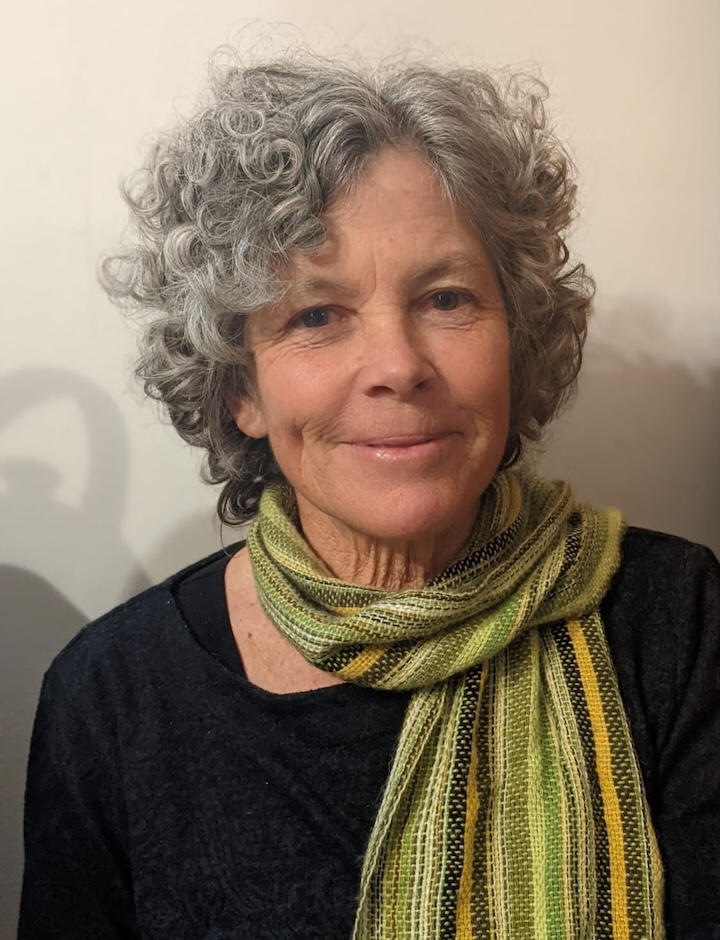
Geordie Ractliffe
Executive director
Geordie has a PhD in Ecology, and an early career as a river ecologist in the fields of resource management, mitigation of human impact, and ecosystem restoration. A decade of involvement in school governance deepened a commitment to quality education for marginalised youth and led to Geordie redirecting her energies to the education sector. She is a professional teacher, with postgraduate research interests in curriculum and pedagogy. She has mentored teachers in training and was an assessor of Professional Teaching Practice at the University of Cape Town. Geordie assisted the Impact Trust from 2019 as a curriculum designer for its Routes to Resilience programme offerings. She set up Sustainability Matters alongside Miselwa Mzanywa in 2022, to deepen their work in youth development through sustainability education.

Miselwa Moza Mzanywa
Senior programme manager, Board member
Moza is an astute professional, unassuming, a grounded human being, with a Diploma in Marketing Management. She gained corporate insight as a Client Relations Manager at Fairbairn Capital (a member of the Old Mutual group) and this experience helps her to better comprehend the interrelationships between the environment, social injustice, and the economy which is most relevant in her current work. Moza has completed a programme for Sustainability Practice at the Institute for Sustainability Leadership, University of Cambridge, as well as a certificate in Education for Sustainable Development at the Environmental Learning Research Centre (ELRC) at Rhodes University, and these have provided foundational knowledge to the work she does as a senior facilitator at Sustainability Matters. Moza is a consummate relationship-builder through engaging in meaningful and impactful discussions with people from all walks of life. Her experience as a youth development program facilitator spans more than 20 years, and cements her leadership in one of the cornerstones of our work – to understand, and develop and maintain relationships of trust with our youth participants.
Elspeth Donovan
Board chair, Programme vision
Elspeth is a Fellow of Cambridge Institute for Sustainability Leadership and Chair of the Board of Sustainability Matters. Elspeth’s interest in Sustainability, Well Being & Human Development comes from her science background when she studied Zoology, Biochemistry and Dietetics and much later on in life an MBA. Elspeth worked for Cambridge Institute for Sustainability Leadership (CISL) from 2008 until she retired in 2021. She was responsible for designing and delivering CISL’s education work in South Africa. In addition to customised work with various organisations, she directed the CISL Sustainability Practitioner Programme and the Business and Sustainability Programme in South Africa. She was a tutor on CISL’s Post Graduate Certificate in Sustainable Business, Head Tutor on the Online Business and Sustainability Management and currently Co Convenor and Head tutor on CISL’s online programme Business and Social Justice. Elspeth’s passion is preparing current and future leaders for a very different future through “curated” learning experiences. In addition to being Chair of the Board of Sustainability Matters she is a member of the Just Share Board, a shareholder activist NPO in South Africa.

Alexei du Bois
Senior facilitator, Board member
Alexei is the Heimbecker Inspiration Chair for Experiential Education at Shawnigan Lake School in Canada. He was previously Director of International Learning at Hilton College in South Africa, as well as a Commonwealth Scholar and NRF Doctoral candidate at the University of Oxford, completing a DPhil on Education for Sustainable Development practices in Southern Africa. He is a director at Sustainability Matters, a South African climate education NPO, a faculty member for Sustainability Education, an international education and sustainability consultancy, and an expert advisor to the Junior Executive MBA initiative. He worked as the Director of Studies at Peponi School in Kenya and as a consultant on policy contributions for UNESCO, DFID, the World Bank, and the British Council in Mexico. Alexei began his career as a teacher in Cape Town where he directed the Luleka Exchange – a multi-school partnership facilitating curriculum exchange and leadership capacity building in public schools.
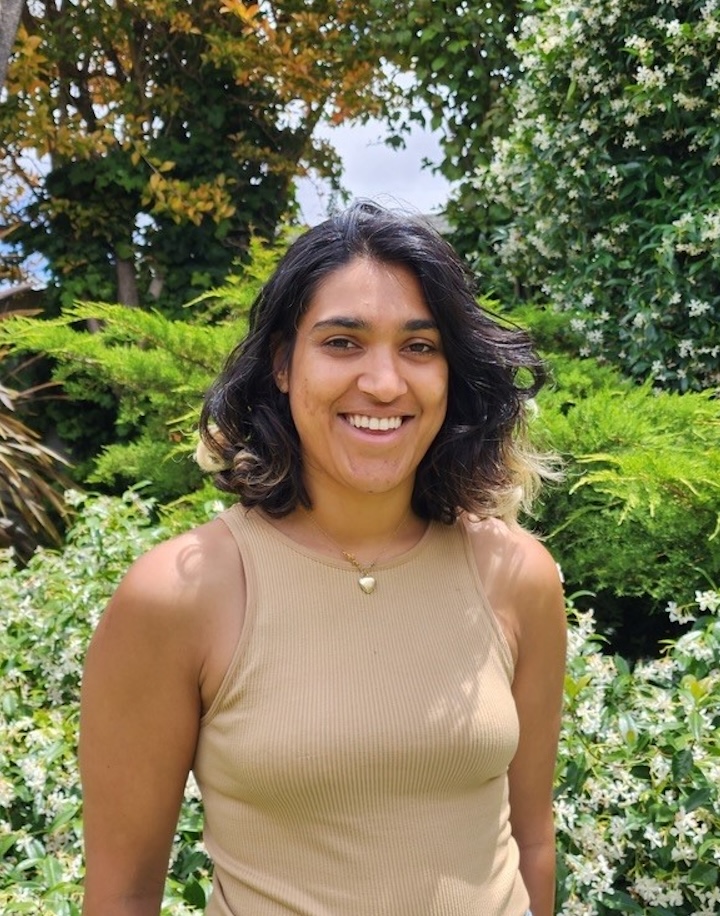
Jasmin Gordhan
Facilitator
Jazz is a lover of adventure, art and spiritual growth. She is a professional teacher, who also holds a B Comm in Economics, Philosophy and Politics. Whilst completing her studies she volunteered in community-based youth organisations and had a passion for learning from the younger generation. This lead her to explore teaching English In Vietnam, and volunteering at Harambee. She engages in the meditative arts of Yoga, and Tai chi and explores painting as a form of self-expression. These practices as well as her engagement with the youth of today, are continuously developing her compassion, empathy and awareness of self. Since 2022, Jazz has been a facilitator of Sustainability Matter’s youth programmes, with a leadership role in our school sustainability education. She has coordinated the internal processes of student observation and feedback, and has contributed to curriculum design.
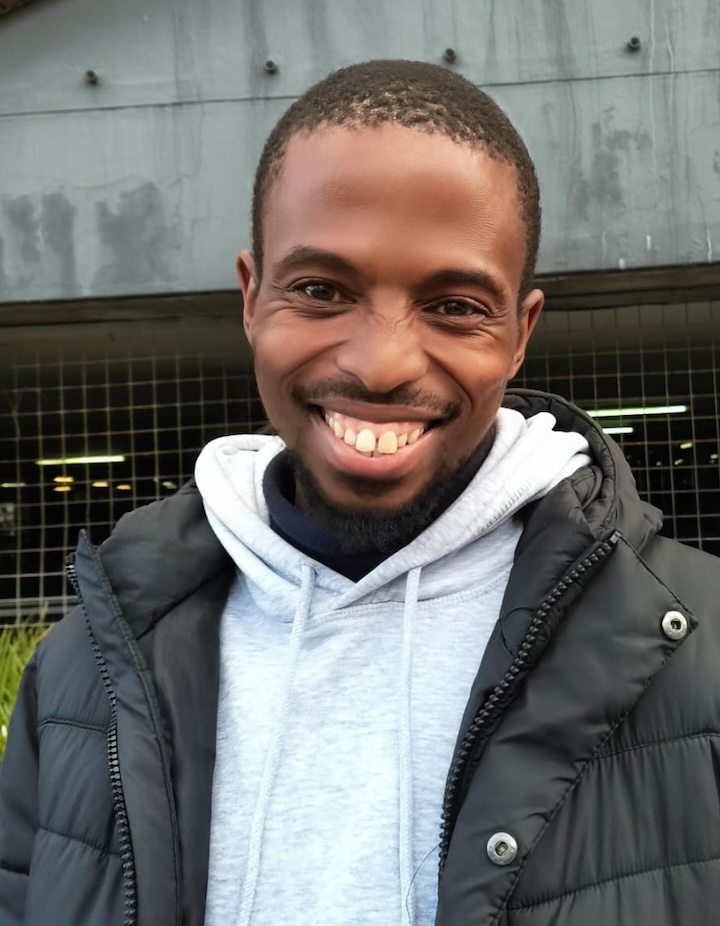
Dumisa Mguda
Facilitator
Dumisa has a postgraduate degree (Honours) in Social Development from the University of Cape Town. He is community oriented and has been involved in several community projects and initiatives around youth development. An advocate for building capacity and agency for communities to grow their own organic food, Dumisa has volunteered for Mfuleni Community Action Network, for Food Agency Cape Town (FACT) and Uphaka Nini community soup kitchen. Dumisa has been a facilitator and programme co-ordinator at Sustainability Matters since 2022, playing a leading role in student monitoring and needs assessment.
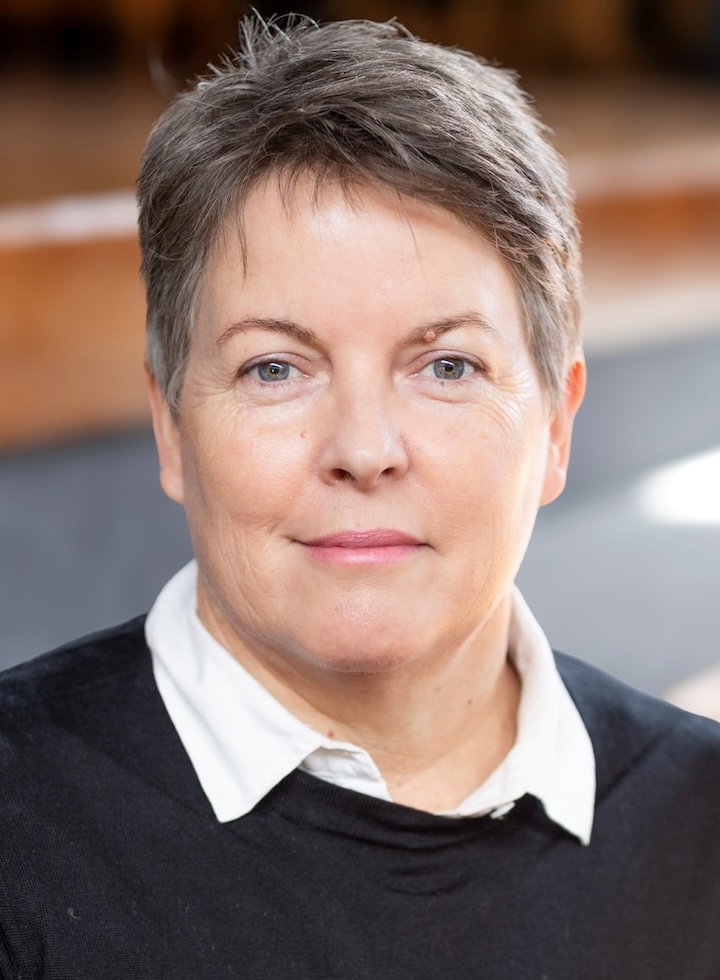
Trilby Krepelka
Creative process specialist
Trilby has had a varied career that started in the private sector but has increasingly refocused on civil society, community and personal development. Five years spent in financial services culminating as Operations Manager at Fairheads Benefits Services in South Africa, gave her a deep understanding of matching value to benefit and she moved to centre her attention on education, literacy and employability. She has served as a Director of Little Libraries, focused on promoting literacy and early childhood education in under-resourced communities across South Africa, and has also served as National Project Manager for the Santa Shoebox Project, and Director of Dreamworker Employment. Through her company WholeHeartedArt, Trilby facilitates process art workshops, which combine her training and experience of ASTAR (Awaking Spirit Through Art), SoulCollage, the Life Line course, as well as Helene Smit’s Depth Facilitation. WholeHeartedArt is a space where creativity, playfulness, discovery, wonder, healing, as well as a greater sense of connection to and understanding of self can be explored. It is a place that is safe and sacred, that is reserved for exploring and expressing the heart of self through mark making.
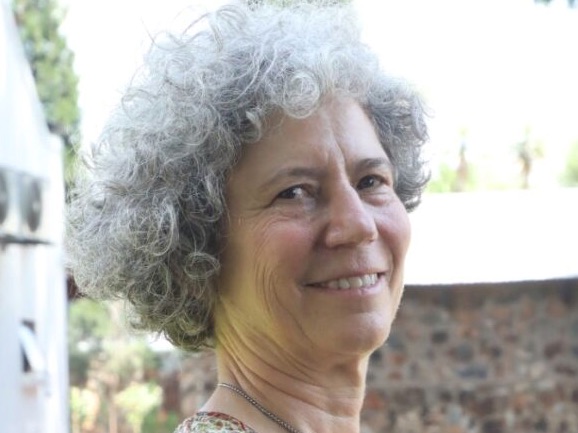
Michal Friedman
Curriculum advisor, Facilitator, Emergent learning mentor
Michal has a Master’s in Social Science (Geography), and in The Philosophy of Social Innovation (Crossfield Institute, England). As a geographer she has worked at the Institute of Natural Resources (Natal University), and in the NGO sector, at the National Land Committee (land reform prior to 1994) and the African Gender Institute, supporting African woman leaders across the continent to write and theorise. In the past 23 years Michal has helped initiate a Gender Justice and Transformation Program and is currently a Senior Associate of the Global Feminist Network “Gender at Work”. Her work focuses on supporting leaders and organisations to build cultures of equality and inclusion, addressing organisational culture, deep structure and inclusive practices of leadership, working with the intersectionality of power relationships of many kinds. Her approach integrates emergent learning, complex systems, embodied practices and an awareness of transgenerational, intergenerational and collective trauma. In the last ten years, her complementary education has enabled her to support an integrated approach to working with wellbeing, personal and social transformation, supporting people to be sustainable in their own bodies and energy as well as in how they live in their organisations, in ways that include self-care, collective care and more inclusive/equal ways of being and relating.
Gallery
